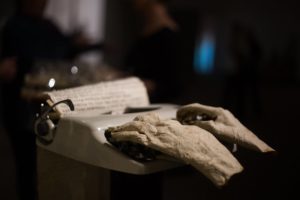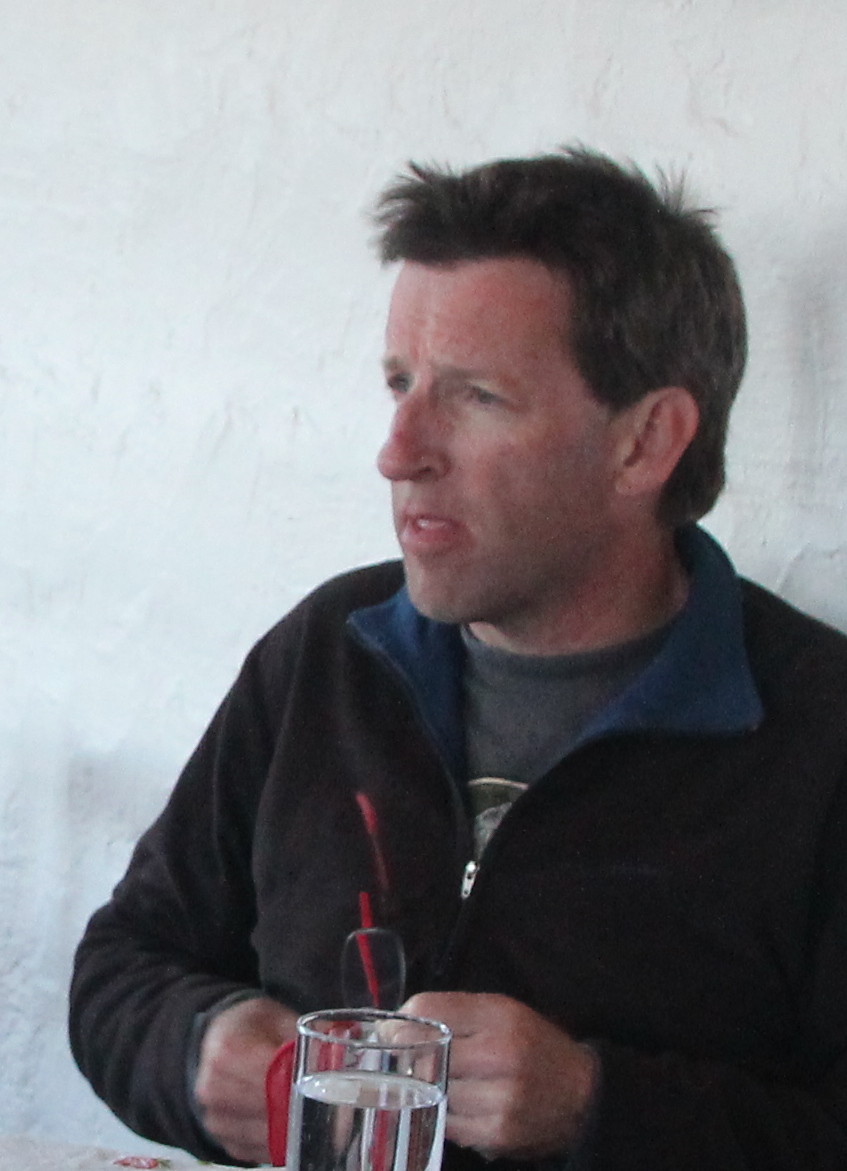 During the year in which I turned 21 I lived in Germany, in Munich. Ostensibly I was taking classes at the university but in reality this was a pretty light load and so I spent as much time as I could walking the streets, marveling at how different it all was than the Suburbia Americana I knew from home. Here was the filigreed city hall, with a glockenspiel of animated figures who danced around several times a day; here was a Baroque church tucked away on a side street whose dim interior was so densely stippled with gold angels and cherubs that walking in was like happening upon someone’s fever dream of heaven; here was the nudist park not half a mile from downtown.
During the year in which I turned 21 I lived in Germany, in Munich. Ostensibly I was taking classes at the university but in reality this was a pretty light load and so I spent as much time as I could walking the streets, marveling at how different it all was than the Suburbia Americana I knew from home. Here was the filigreed city hall, with a glockenspiel of animated figures who danced around several times a day; here was a Baroque church tucked away on a side street whose dim interior was so densely stippled with gold angels and cherubs that walking in was like happening upon someone’s fever dream of heaven; here was the nudist park not half a mile from downtown.
So far so good. But I was always attracted to the darker sites too, somehow awestruck by the notion that I could on any ordinary day walk the same streets where terrible things had happened. Here was the Odeonsplatz, the plaza where exuberant civilians, among them a young Adolf Hitler, had gathered to celebrate the announcement of their country’s entry into World War One. Less than a decade later, in 1923, the same place rang with shots as Hitler, an upstart politician, tried to mount a coup and take over Bavaria. It failed; he went to prison and used the time to write Mein Kampf. A decade later he succeeded in taking over not just Bavaria but all of Germany, and then the streets rang with the stomp of marching columns and the cries of “Heil Hitler!” Fast forward a bit more and the most profound sound would have been the B-17s flying overhead, dropping their loads of bombs on a half-ruined city.
That all this could have happened, not that long before, on streets where for me the biggest challenge was figuring out whether I’d muster the nerve to ask one of my fellow students for a date was an exercise in cognitive dissonance. Should there not be more resonance in the stone walls and pavements? I wondered. If I just listened a bit more closely, would I not be able to hear some final echoes of history?
I was naïve then and did not know that anyone sensitive enough to have heard them would have been equally susceptible to hearing them in what I thought of the bland suburb from which I’d come. Nothing had ever happened there, I thought I knew, or nothing more than the slow drip, drip of real estate development and commuters heading for their jobs downtown and high-schoolers inventing their own mini-societies of hope and envy and terror. In retrospect it seems ridiculous that I did not know then that the peaceful landscape had seen its own version of the southern Trail of Tears or Navajo Long Walk, the forced expulsion of native people, the blasting away of the beleaguered bison and passenger pigeons, the long litany of greed and violence and land-lust. Is there a landscape somewhere that doesn’t record its own story of human-induced loss? I would have answered Antarctica once, but in this era of climate change that response itself seems naïve.
A couple of years later I was in Europe again, engaged in a sort of gap year plus after college, when we all heard the news that a nuclear plant had blown up or burned up or somethinged up in the Soviet Union. It was the first time I’d heard the name Chernobyl, to be sure, and it was the first time I’d felt so tangibly tied to a terrible historic event. In the evening, I sat in the lounge of the hotel where I was staying, listening to the BBC reporting on wind patterns, fallout, worries about the state of the milk supply. There were more questions than answers, more hot worry than cool analysis.
It is sobering to think of the many marks we leave on the landscape, whether they are painted with blood or carbon dioxide or radiation. Here in Flagstaff we don’t have to go far to see the result; just take a drive up to Cameron and see the scraped earth just outside some of the neighborhoods. Some of the sites aren’t even fenced off, just staked off, here and there, with Warning: Radiation signs—a legacy of the Cold War and our hunger to out-arm the Soviets so that we could prevail, for a while, in our clash of civilizations. The Navajo people working in, and living next to, the mines? Too bad, was the view at the time. Even a Cold War that doesn’t involve any shooting leaves collateral damage.
So historical trauma baked onto the land is all around us if we care to look. And listen. Because the violence we do to the land and to each other has victims, and witnesses, and it is in their voices that remembrance and empathy and any possible chance of changing course takes shape: in their voices, and in the caring ears of listeners. Which is why the Martin-Springer Institute at NAU is organizing a series of readings at the Coconino Center for the Arts in concert with its “Echoes of Loss: Artistic Responses to Trauma” exhibit. On three days—April 18 (4-4:30 p.m.); May 5 (1-1:30 p.m.); May 17 (4-4:30 p.m.)—local volunteers will read excerpts from Svetlana Alexievich’s book Voices from Chernobyl, an oral-history collection of tales of loss.
They’re awful stories. Some are accounts of quick deaths, of the loss of relatives and neighbors who out of heroism or coercion went in to put out the fire. Many of them died within weeks. Others have seen their lives uprooted in the decades since, and recount what it’s like being a displaced person from a contaminated place. There is still a huge “exclusion zone” around Chernobyl that will remain contaminated with radiation for many thousands of years.
One of the volunteer readers is Steve Smith, a former Navy chaplain who teaches a class on forgiveness at NAU.
“The book is one long lamentation,” he said. “It’s the souls groaning. It’s trying to give voice to the stories of people who have pretty much been forgotten.”
Hearing such stories is a struggle, he said; there were times when he wanted to turn away from the book, to forget that such terrible things had happened. But he said reading the stories, or listening to them, is a way of exercising the best in being human: “My hope is that people develop a sense of compassion and empathy for another human being. They’re not turned away.”

